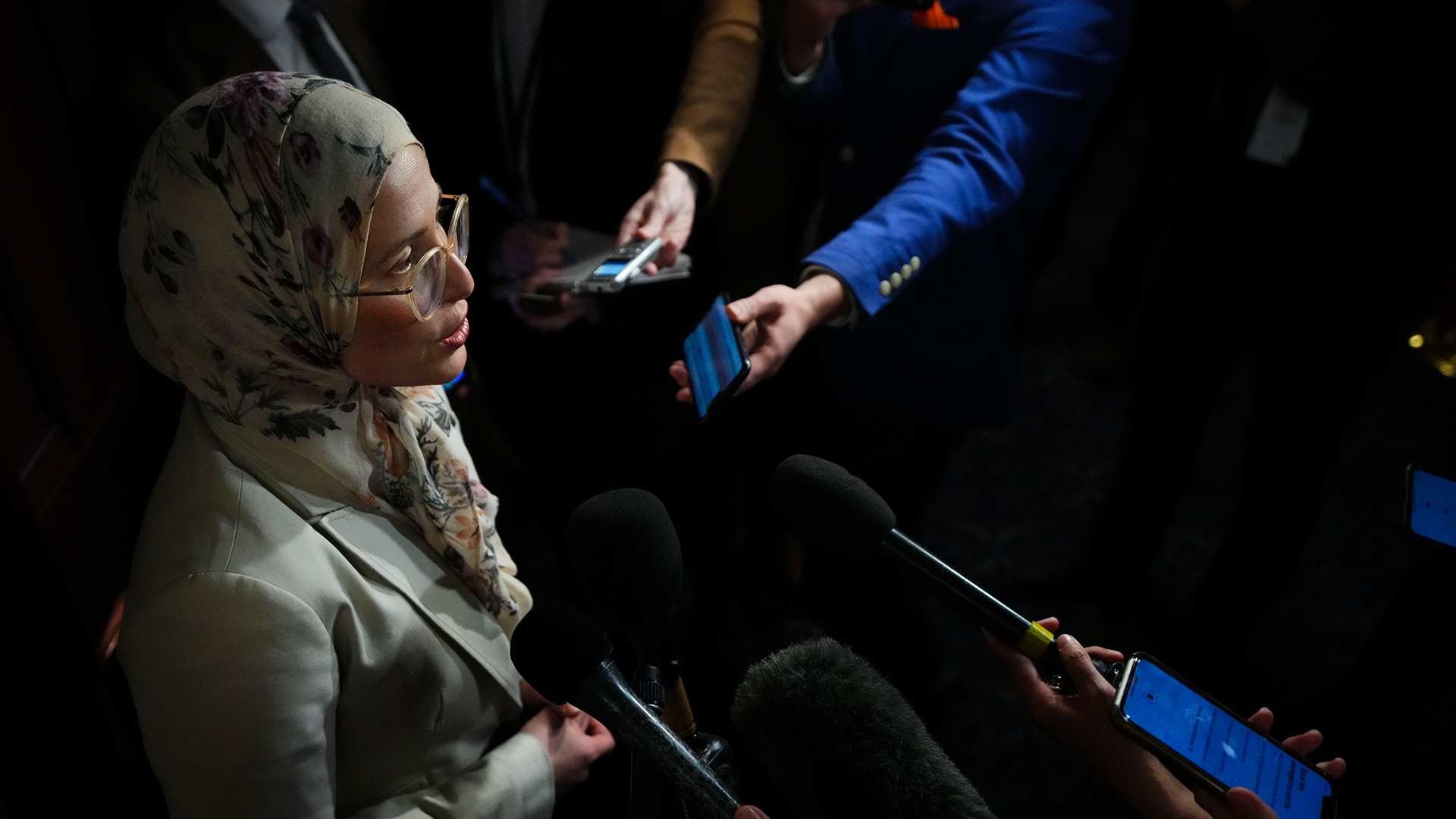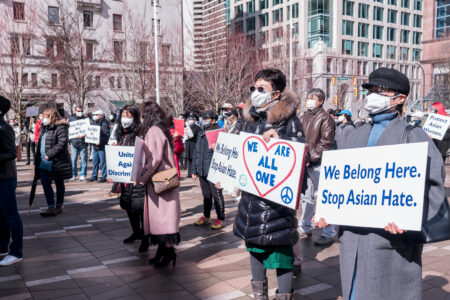
(Version française disponible ici)
Let’s get straight to the point: Canada has an Islamophobia problem, and that includes Quebec.
Islamophobia may not be the sole driver of support for Bill 21, but poll after poll has shown at least a correlation between the two. A 2021 poll by Ekos showed that the rate of negative opinion toward Muslims is higher in Quebec (29 per cent) than elsewhere in the country (13 to 19 per cent).
Amira Elghawaby, Prime Minister Justin Trudeau’s first special representative on combatting Islamophobia, has been under attack since the end of January for pointing it out. What was supposed to be a moment filled with hope for sincere and open dialogue has turned into a barrage of attacks – against Elghawaby, the new position itself, and the very concept of Islamophobia, as evidenced by the call to abolish the post of special representative.
Fourteen months before Elghawaby’s appointment, Irwin Cotler was reappointed Canada’s special representative on combatting antisemitism. Rightfully so, no one asked for that post to be abolished.
At issue is a 2019 column Elghawaby co-authored with Bernie Farber, former head of the Canadian Jewish Congress. At the time, Elghawaby was a human rights activist and journalist. In the column, she and Farber cited a Montreal Gazette article on an Association for Canadian Studies report based on a poll conducted by Leger Marketing, saying 88 per cent of Quebecers who held negative views of Islam supported the ban on religious symbols for public school teachers.
The Liberal government must rid the country of systemic Islamophobia
Tackling Islamophobia begins by rebuilding trust with the Muslim community
“Unfortunately, the majority of Quebecers appear to be swayed not by the rule of law, but by anti-Muslim sentiment,” the authors wrote in the Ottawa Citizen column. This has been the main trigger for attacks on Elghawaby.
Meanwhile, the Association for Canadian Studies, which commissioned and presented the poll examining Quebec attitudes toward religion and Bill 21, described negative views of Islam as a “key driver in distinguishing supporters and opponents of Bill 21.”
The Montreal Gazette news article on the poll said, “Anti-Muslim sentiment appears to be the main motivation for those who support a ban on religious symbols, a new poll has found.”
Elghawaby isn’t the first to note a correlation between anti-Muslim sentiment in Quebec and support for the law restricting religious freedom in certain public service roles, but she seems to be the only one to apologize for doing so. We see a double standard at play here.
Since then, opponents of Amira Elghawaby’s appointment have parsed her every article and social media posting from her time as a journalist and activist, taking great leaps from points she was trying to make about discrimination and colonialism in Canada.
In one unfortunate example, Elghawaby wrote on Twitter that she wanted to throw up after a noted scholar wrote in a national newspaper that French Canadians were the largest group victimized by British colonialism and should be recognized alongside Indigenous people and other disadvantaged groups.
The author, Joseph Heath, has since explained he was being intentionally provocative. Elghawaby addressed those comments in a recent interview with La Presse, saying she reacted to the piece in the aftermath of the discovery of unmarked graves on the grounds of the former Kamloops Indian Residential School in B.C. She realized that it was inappropriate and apologized.
Meanwhile, she has been condemned by the Quebec government and opposition, and thrown under the bus by some members of the government that appointed her.
That includes two of the federal government’s senior Quebec ministers, Pablo Rodriguez and François-Philippe Champagne. Rodriguez said he was “wounded and shocked as a Quebecer.” Champagne declared he was “worried,” adding Elghawaby should take time to reflect upon what she had done.
The leader of the Bloc Québécois, Yves-François Blanchet, demanded Elghawaby’s resignation and the abolishment of the position.
At least the Bloc leader took the time to meet Elghawaby. The Quebec government refused to even meet the special representative and asked her to resign, both before and after her apology. Jean-François Roberge, Quebec’s minister responsible for secularism, said Ottawa should fire Amira Elghawaby immediately if she chooses not to resign.
All parties in the Quebec National Assembly joined the call for her to resign. The Legault government, meanwhile, blocked a motion in the National Assembly acknowledging the existence of Islamophobia.
Free speech for some, not for others
Last fall in the middle of the Quebec election, then-immigration minister Jean Boulet said “80 per cent of immigrants go to Montreal, don’t work, don’t speak French.” The remarks were widely condemned across the political spectrum and Quebec society, including by Legault himself.
But what repercussions did Boulet face? Was he forced to resign as a member of the National Assembly? Was he denied a post in cabinet and sent to the backbenches? No. After an apology, he was re-elected and rewarded with another cabinet post as the minister of labour.
Bill 21, with a dress code barring visible religious dress from important public servant work like teaching and policing, is a discriminatory law that disproportionately affects Muslim women who wear the hijab.
How can we have honest yet difficult conversations in our society when the very person chosen to take the lead on the issue of Islamophobia is attacked for criticizing a law a court has said is discriminatory? What does it say about the possibility of progress on this kind of discrimination if she is silenced?
Among many things, Quebec society is known for a rich history of protecting freedom of expression. After all, the Quebec Charter of Human Rights and Freedoms predates the Canadian Charter of Rights and Freedoms. Yet here we are, almost 50 years after the Quebec charter was passed into law, witnessing an assault on freedom of expression.
Freedom of speech is so valued in Quebec that last year the government adopted Bill 32, a law with the stated aim of protecting academic freedom. It protects teachers’ rights to say potentially hurtful and offensive things while leaving vulnerable students without recourse.
The same people who advocated for that law are now on a campaign of public humiliation to silence Elghawaby for having made an observation based on a statistical fact. The same Elghawaby who, as a hijab-wearing woman, would be barred by Bill 21 from numerous important government posts in Quebec. And yet she is the one apologizing. Something is not right.
A little more humility and understanding
Islamophobia continues to be a rampant issue in Canada and in our province of Quebec. Systemic racism exists in Canada and Quebec. Having leaders deny these facts only exacerbates the issues.
Through a two-decade career as a journalist and human-rights advocate, Elghawaby is known as a strong communicator, consensus builder and one who is open to dialogue. When it comes to human rights and civil liberties advocacy, Elghawaby has insights from operating both within Quebec and Canada.
Even those opposed to the idea of an envoy position, including the Bloc Québécois leader, acknowledge that Elghawaby is intelligent, a strong communicator and speaks excellent French.
Elghawaby has apologized for her remarks, and we should move forward by giving her and her office a chance to do their important work.
In her apology, one we view as sincere, she said, “I have been listening very carefully. I have heard you, and I know what you are feeling. And I am sorry.” Through the humility and dignity Elghawaby demonstrated in the moment, we see a person who indeed understands Quebec, who is open to striving for even greater understanding.
Quebec’s political leaders should strive for some humility and understanding as well.














